No products in the cart.

Finding an educational therapist or dyslexia therapist for your struggling reader or writer can be crucial. This decision can significantly impact your child’s academic journey, helping them overcome decoding, comprehension, spelling, composition, or fluency difficulties and fostering a love for reading and writing. With many options available, knowing what to look for and the questions to ask is essential to ensure you find the best fit for your child’s needs.
Key Considerations
Qualifications and Experience
If your child is below grade level in literacy skills, it is crucial to seek out an educational therapist with specialized training in literacy acquisition and effective instructional methods. If your child has diagnosed or suspected dyslexia, the specialist needs considerable training in multisensory methods of teaching structured literacy. This training typically involves hundreds of hours of coursework on multisensory methodologies for teaching reading and writing, extensive lessons about English language structure, and long-term supervised experience. The level of competence in this field can vary significantly. Many well-known nationwide reading centers boast structured literacy experts, but a quick look at their job listings reveals that candidates for these roles are often college students who attend a short curriculum training and receive little more than minimum wage. An immeasurable difference exists between a tutor who attended a week-long training and a dyslexia therapist who spent years training and gaining experience. Many parents, unfortunately, spend a great deal of money and time bouncing from tutor to tutor with varied results before they find success with a certified dyslexia therapist.
Evidence-Based Practices
It’s essential to seek professionals who employ evidence-based instructional methods and interventions supported by research. These may include Orton-Gillingham, Wilson Reading System, SIPPS, and other research-backed approaches. A therapist with extensive structured literacy training and experience is likely to achieve success using any evidence-based curriculum, and most therapists will incorporate elements from various programs as needed for your child. Be cautious of tutors who use terms such as “guided reading,” “leveled readers,” “reading and writing workshop,” “reading recovery,” or “balanced literacy.” These programs, materials, and ideas have been known to hinder the progress of struggling readers and are often not rooted in the science of how humans learn to read and write. They are also approaches likely to be used at your child’s school and are frequently the reason parents seek outside help in the first place.
Assessment Procedures
A reputable educational therapist or reading therapist will conduct ongoing assessments to identify your child’s strengths and weaknesses in reading. They should use standardized tools and informal assessments to develop a tailored intervention plan.
Individualized Instruction
Every struggling reader is unique, so look for educators who provide individualized instruction tailored to your child’s needs. Your child should always feel comfortable and supported in their sessions. Therapists should be flexible in their approach, adjusting strategies and techniques based on your child’s progress and real-time feedback. Beware of programs and learning centers that train staff on a single program and expect educators to “stick to the script.” The science of the “reading brain” and the structure of the English language are incredibly complex topics, and therapists must have multitudes of different approaches to try when a child doesn’t quickly respond to instruction.
Collaboration and Communication
Finding an educational therapist who responds to questions about your child’s progress, shares strategies for reinforcement at home, and welcomes your input and questions.
Engagement and Rapport
Building a positive relationship with your child’s educational therapist is essential for motivation and progress. Look for someone who shows genuine care, patience, and enthusiasm for helping your child succeed.
Questions to Ask
- What is your experience in working with struggling readers?
- Do you have any relevant degrees or specialized training in literacy instruction? How many training hours have you completed, and where did you complete your training?
- Can you describe a lesson using multisensory methods?
- What is your hiring criteria and what does the interview process look like? (for organizations)
- What assessment procedures will you use to identify my child’s reading needs?
- How do you individualize instruction for each student?
- How do you communicate progress and collaborate with parents? Can I request a report on progress at any time?
- Can you provide any parent references or success stories from previous clients?
- How do you build rapport and engage with struggling readers?
Finding the right educational therapist for your struggling reader requires careful consideration and a lot of research. By prioritizing educator qualifications and evidence-based practices, you can ensure your child receives the support they need to overcome reading challenges and thrive academically! Learn more about our highly qualified educational therapists and specialists.
Schedule a free phone consultation
You can schedule a free initial consultation to learn more about our Educational Services. We will listen to your concerns, answer any questions, learn about the student’s needs, and help guide you through our new student intake process. Contact Us.


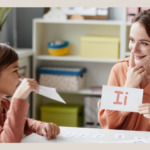
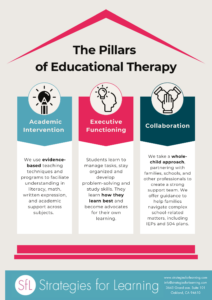
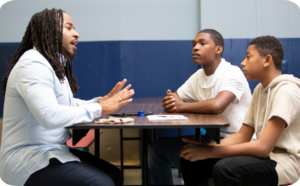
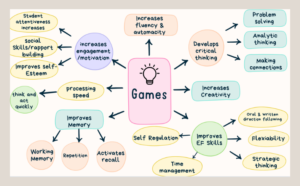
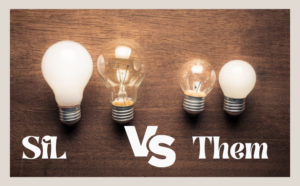
No comment yet, add your voice below!